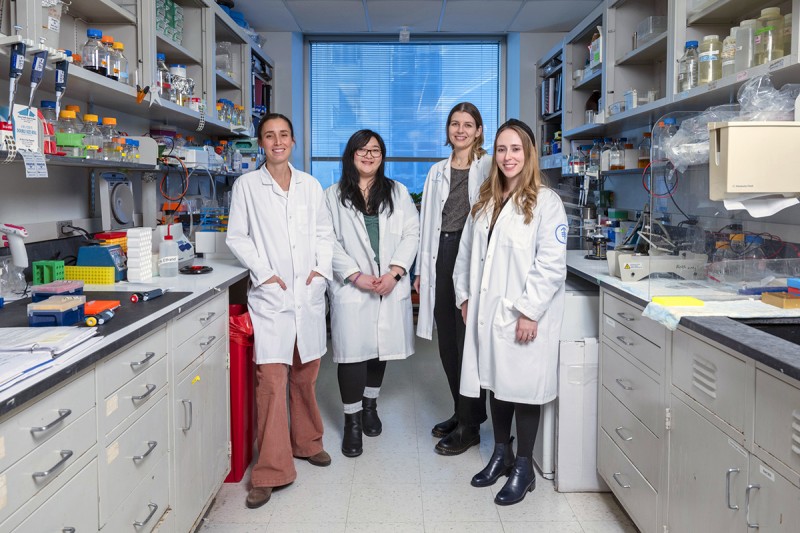
Each year, the Marie-Josée Kravis Women in Science Endeavor (WISE) initiative awards several fellowships to female graduate students and postdoctoral fellows to support their research at Memorial Sloan Kettering Cancer Center (MSK). The awards are announced in March, to coincide with Women’s History Month, as evidence that MSK is committed to supporting promising female scientists.
This year’s winners are postdoctoral fellows Vittoria Bocch, PhD and Julia Brunner, PhD and graduate students Tzippora Chwat-Edelstein and Melissa Yao. Read about these exceptional women and their research below.
Vittoria Bocchi
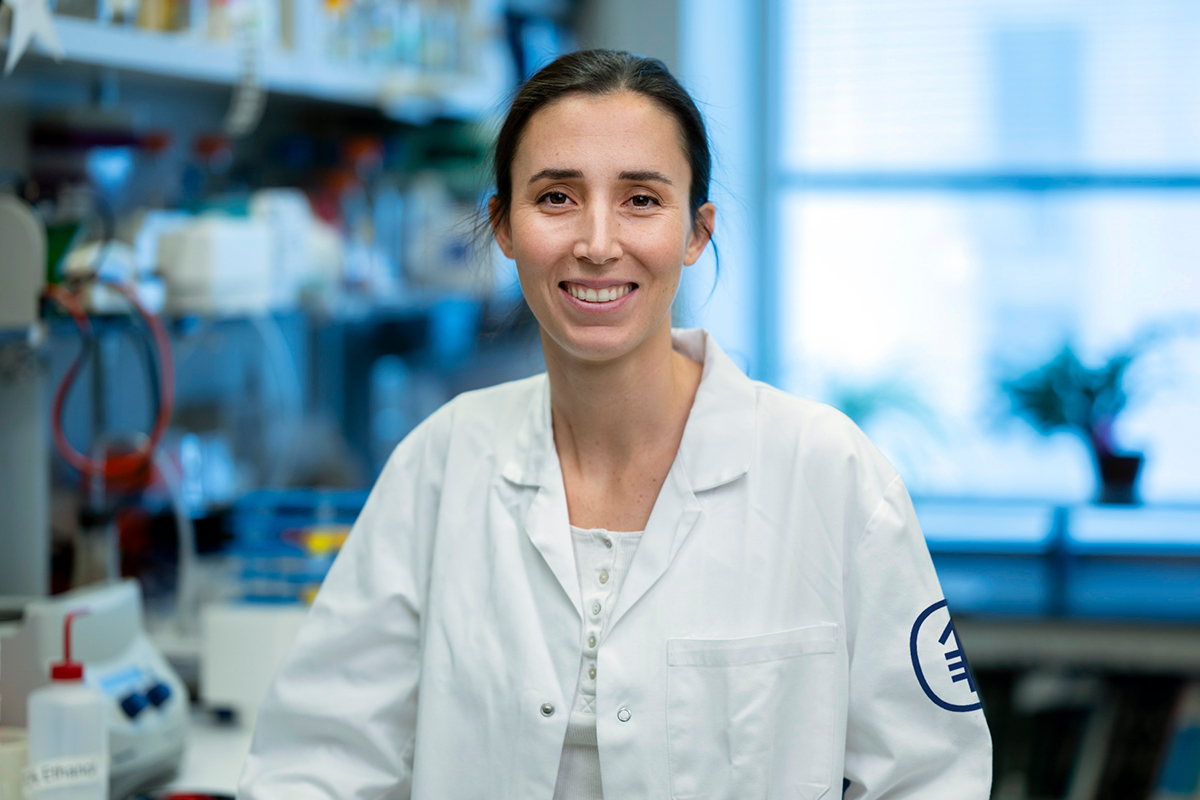
As a postdoctoral fellow in the laboratory of Lorenz Studer, MD, Dr. Bocchi is focusing her efforts on understanding the instructions necessary for making one particularly valuable type of cell: the A9 dopamine neuron. This is the cell type that mysteriously dies in Parkinson’s disease, leading to the tremors and loss of motor function that are characteristic of the disease.
Scientists around the world have made progress in creating this cell type in a dish. But just as there isn’t a single recipe for making chocolate chip cookies, there are variations in the many different recipes that scientists use to make these A9 dopamine neurons.
And that’s where Dr. Bocchi’s skills as a neuroscientist with extensive computational expertise come in handy. She is using those number-crunching and big data skills to build what she calls an atlas of all the dopamine neurons that scientists across the world have generated through different recipes.
Dr. Bocchi didn’t start out her scientific career being a computational person. That only came midway through her master’s degree when she found herself face-to-face with a project that required her to employ big data skills she didn’t yet have.
“Initially, it was a bit daunting because I didn’t have a background in computational biology,” she says. “But there was this data set that needed to be analyzed.”
In the end, she surprised herself: “It wasn’t something I thought was my area, but one that I discovered fit perfectly.”
That’s a lesson she wants to impart to other young female scientists coming up in the world. “Never think that something is not suited for you just because you think it may be too hard,” she says. “In reality, if you sit down and take the time, any barrier can be broken.”
As both a mother of two young children and a scientist, Dr. Bocchi is grateful for what the Kravis WISE postdoctoral fellowship means for her scientific career and her family.
“It’s a nice recognition of how difficult it can be to put everything together,” she says. “It’s not easy being both a scientist and a mother, but this fellowship will certainly help a lot.”
Julia Brunner
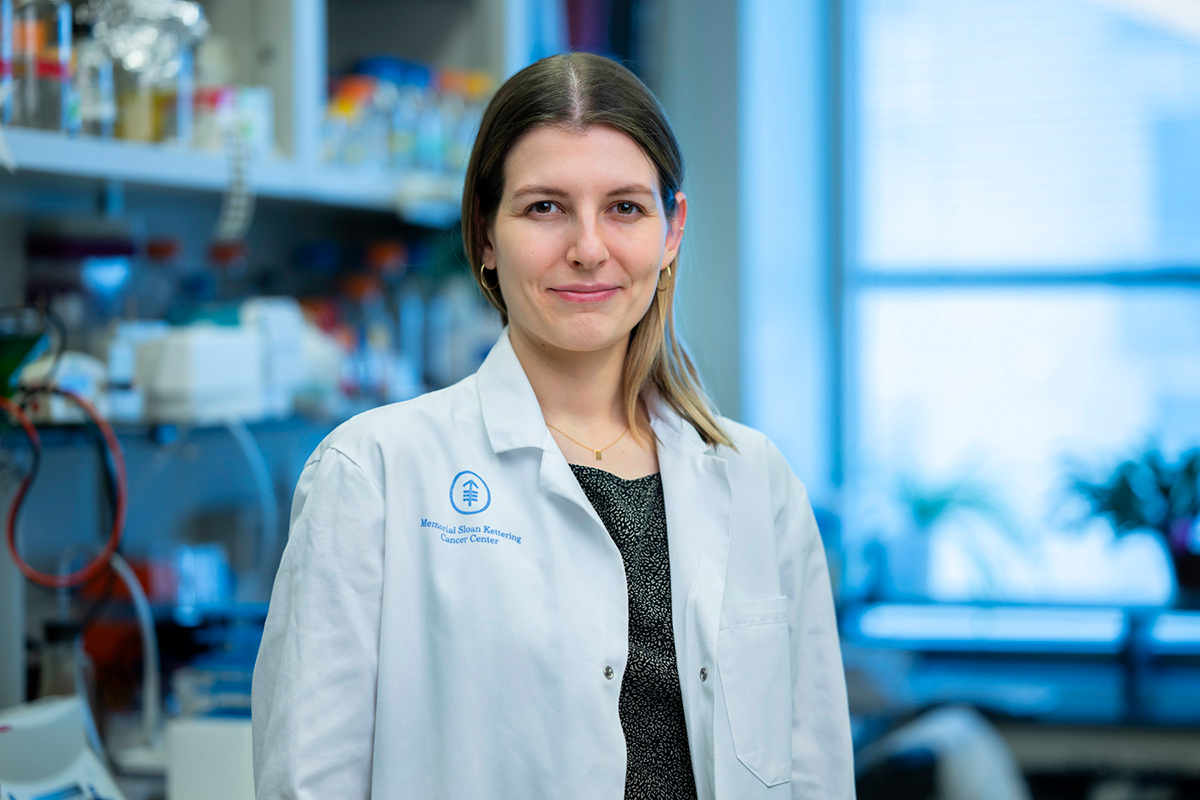
Those two desires came together serendipitously when she stumbled across the lab of Lydia Finley, PhD, in MSK’s Sloan Kettering Institute.
“I read her current publications and they were just so good, so well written,” Dr. Brunner says. “At that point, I hadn’t really thought about metabolism as a driver of cell fate decisions that could be important in cancer. So reading Lydia’s papers was really an ‘aha’ moment for me.”
Dr. Brunner came for an interview and became even more convinced that this was what she wanted to do. “I remember meeting with Lydia and saying: ‘This is the coolest thing I’ve ever heard in my life. You have to hire me. I cannot not be a part of this!’ ”
Dr. Finley did indeed hire her, and Dr. Brunner has been busy studying the role of metabolic changes in steering cancer cells toward more or less aggressive fates. Specifically, her work involves a metabolic pathway called the TCA cycle — a core part of how any cell obtains energy and nutrients to grow.
In 2022, Dr. Finley’s lab made the surprising discovery that there was an alternate version of the TCA cycle that scientists had missed in their more than 50 years of studying it. What’s more, this alternate TCA cycle seemed to have direct relevance to cancer. Julia’s project involves developing an organoid model in which to study this alternate TCA cycle and its role as a key lever for cancer growth.
Dr. Brunner is especially grateful to have received that Kravis WISE postdoctoral fellowship, given what she knows about the pipeline of female scientists in academia.
“Something like 60% to 70% of all students and postdocs are female,” she says. “But women just sort of vanish in the later stages of their careers. So I think it’s crucial that we support and promote women and minorities and people from underprivileged backgrounds, and the Kravis WISE fellowships are a great example of that.”
When asked if she has any advice for women coming up in science today, Dr. Brunner offers this:
“I think the next generation should be bold. You can already see how young people are asking for change, asking for better situations, more support for having families, pushing for childcare at conferences, and being more inclusive all around. I think the younger generation should continue to be courageous and state what they need to be successful in this job.”
Tzippora Chwat-Edelstein
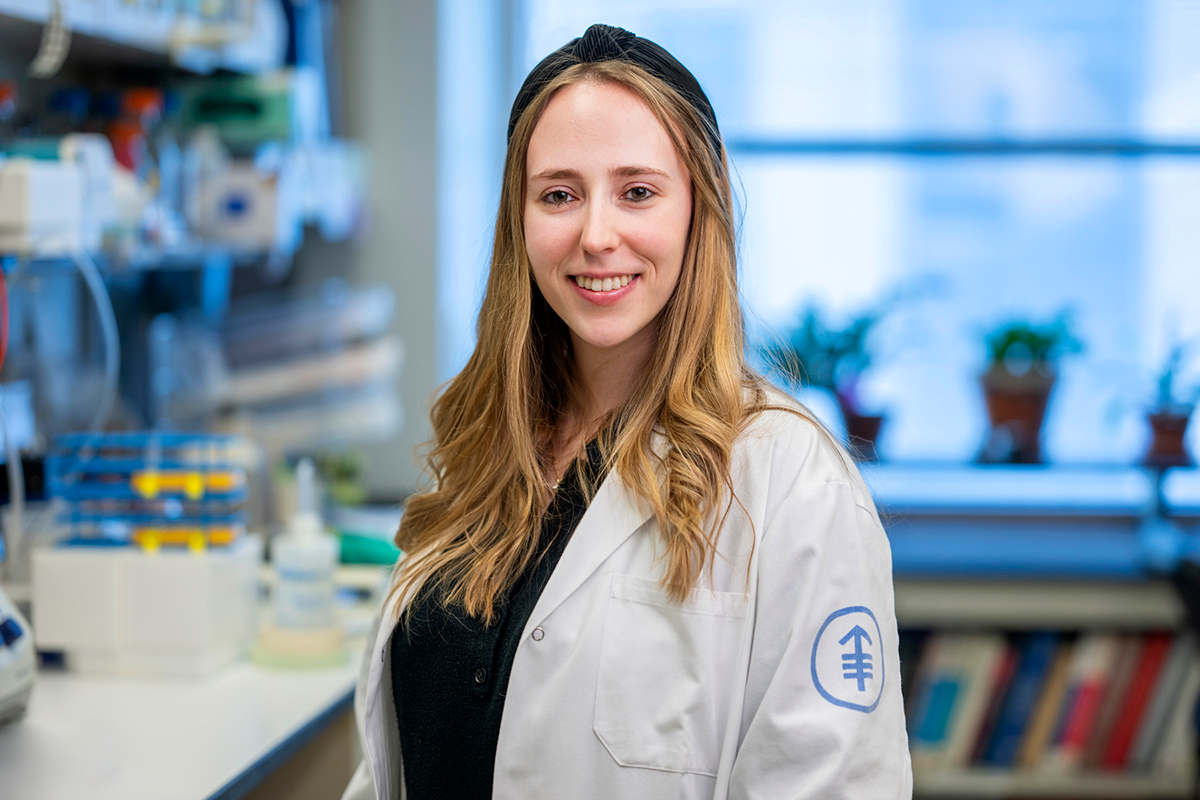
“Genome integrity” refers to all the ways that cells work to protect DNA from damage and to repair that damage when it occurs. The topic has direct relevance to cancer, since often DNA damage that goes unrepaired — or that is repaired incorrectly — can lead to cancer.
Chwat-Edelstein is studying genome integrity in the laboratory of Xiaolan Zhao, PhD, a member of the Molecular Biology Program in the Sloan Kettering Institute. Her focus within the lab is on a protein called SUMO, which stands for small ubiquitin-like modifier. Cells attach SUMO to other proteins as a way to influence where they go in the cell and how long they stick around. When DNA sustains damage — for example, by chemicals called genotoxins — SUMO acts like molecular glue to bring together the proteins necessary to repair the DNA.
“My work is focusing on how, in response to genotoxins specifically, SUMO gets added or taken off of specific proteins to influence the direction that cells take to deal with that damage,” she says. “It’s a very open question.”
Her interest in sciences goes way back. In high school, she participated in a science enrichment program that introduced her to actual lab work “beyond the eighth-grade science fair,” she says. “I’ve basically known since elementary school that this is what I wanted to do.”
Her interest in supporting women in science is long-standing as well.
“I’ve always been passionate about advocating for women in science,” she says. “Throughout my undergrad, I was involved in the City College Women in Science organization, where I helped organize a mentorship program to pair younger women with either graduate students, postdocs, or PIs to mentor them throughout their time at City College. So being supported by a fellowship for women in science is really meaningful to me.”
Melissa Yao
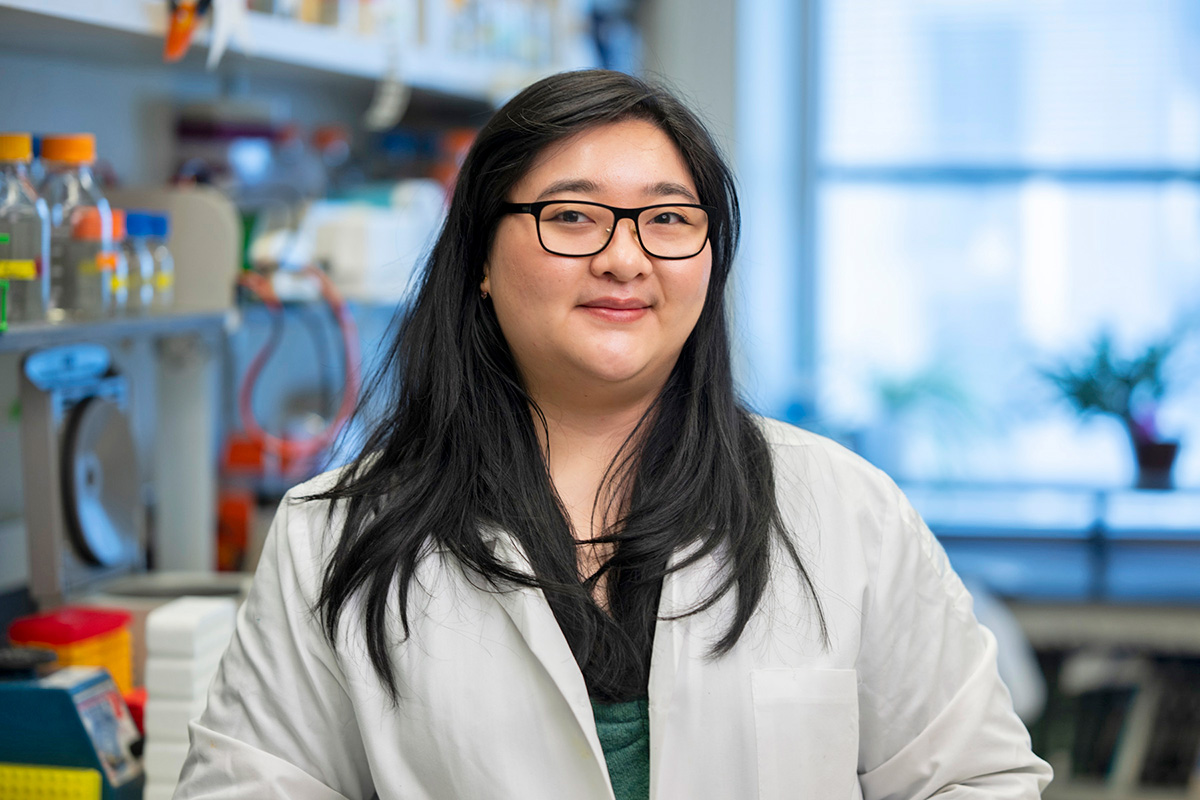
Now in her third year of her PhD program at the Gerstner Sloan Kettering Graduate School of Biomedical Sciences (GSK), Yao retains that same sense of joy at doing science. Working in the lab of physician-scientist Andrea Ventura, MD, PhD, she is studying the role of extra-chromosomal circular DNA, or ecDNA, in cancer. These are little rings of DNA that exist in cells, separate from the DNA that makes up chromosomes. These circular bits of DNA can sometimes contain oncogenes, or cancer-causing genes; the more of these circles they accumulate, the more aggressive the cancer can become.
“ecDNAs are really interesting because they can lead to therapeutic resistance,” she says. “But scientists don’t really understand when in a tumor they arise — if they are a result of therapy or if they are just a consequence of a cell being cancer.”
Scientists have known about ecDNAs since the 1960s. But not until recently was it possible to model and study their behavior in a controlled system.
With the help of some sophisticated genetic engineering techniques, her goal is to model how these ecDNAs influence the development of liver cancer over time in mice. She won a Kravis WISE graduate fellowship for her project tracking how an oncogene called mdm-2 carried on an ecDNA influences the development of liver cancer. To do that, she will use a genetically engineered mouse that carries the mdm-2-containing ecDNA in its cells.
“This is the first time that anybody has ever modeled these ecDNAs in mice, starting before cancer arises,” she says.
Yao’s interest in cancer dates back to her undergraduate days. She did laboratory research on pancreatic cancer when she was a student at Stony Brook University on Long Island, worked as a research assistant at Cold Spring Harbor Laboratory after college, and then went on to study liver cancer for her master’s degree at Mount Sinai School of Medicine.
“When I applied to graduate school to get my PhD, I knew I wanted to stay in cancer research and I didn’t want to go anywhere other than MSK to do it,” she says.
Her ultimate goal is to become the principal investigator of her own lab and serve as a role model for young aspiring female scientists. “That’s something that’s definitely lacking right now,” she says. “There just aren’t enough female PIs to balance the field.”
“The reason I applied for the Kravis WISE fellowship is because women are not well represented in science, and I hope that I can set an example for other female scientists,” she says.

